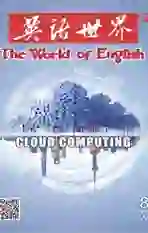镜察欧洲
2020-08-28霍布恩
霍布恩

The places we have known do not belong only to the world of space on which we map them for our convenience. They were only a thin slice, held between the contiguous impressions that composed our life at that time; the memory of a particular image is but regret for a particular moment; and houses, roads, avenues are as fugitive, alas, as the years. —Marcel Proust2
我們知道的那些地方,不只属于这个空间世界,为了方便起见,我们才把它们标记于其中。它们只是当时构成我们生命的连续印象中的小薄片;我们对特别影像的记忆只是对特别时刻的遗憾之情;房屋、道路、大街转瞬即逝,唉,正如流年一般。 ——马塞尔·普鲁斯特
A BBC reporter, a frequent and enthusiastic traveller, once encountered a couple in north-western China, who were absolutely flabbergasted by the idea that he was travelling alone, and that he did so by choice, not through necessity or because he had no friends or family (of which he has many). After a lengthy interrogation concerning his marital state, his family circumstances and so on, one of them eventually stammered, inarticulate with incredulity, “But whos going to take your photograph?”
Weve all seen them, havent we, the group lined up in front of some attraction, the girls acting out what they think is cute, the spotty teenage puppies imagining that all the world is admiring their bad attitude and their slouch, the grannies with their umbrellas and their bags of medicine, the clerks with their office shoes and socks clashing with their holiday shorts, the wives and girlfriends applying even more make-up for the holiday snap—tourists, eh?
Why do we do it?
Why do we need a photograph? Is it to prove to ourselves that weve actually been there? Is memory so short, so fallible?
If its to prove it to others, then what are we trying to do? Can experience be transferred like this? When we stand in the silence of the Amazonian rainforest at noon, listening to the breeze, and smelling the incredible variety of aromas, from the rank decay underfoot to the herbal notes and perfumes of trees and flowers, that sensation cant be captured by the camera. Likewise, I can take as many pictures of it as I please, but there is no way I can convey to you the taste of a meal I ate but you didnt; I once visited Rio de Janeiro, where I ate a salad of six different citrus fruits, none of which I had tasted before: it was exquisite, unforgettable, and completely beyond paraphrase, translation, or transmission. Imagine explaining the taste of an orange…
This is the cultural gap that can divide us, but its more often—as it ought to be—the ground for delight, where the questions asked can bring both of us a new knowledge, not only of the other person and their culture, but also new knowledge of ourselves. And might that not be one of the reasons were on this earth, to find out who we are?
Collectively, as humans, we can share that same delight. Exactly when did knives and forks appear? Why do Europeans and Chinese people use towels differently? (Europeans like a towel to be dry and rough, so all the dead skin is rubbed away.) What did Italians eat before tomatoes arrived from Mexico, and before pasta was invented? Why pizza? Who invented the sandwich, and why? Who makes the most cheeses? Where are the best sausages? Why should men walk on the outside of the pavement if they are with a woman? Why do Europeans find it disgusting to hear or see people talking with their mouths full of food, or making lip-smacking noises as they eat with their mouths open? (And we do, dear reader, we do find it disgusting.)
Guo Ying isnt going to give you all of the answers to questions like that—at least, not in this book—though she will give you some of them. But you can take away something much better from what she has to say. You can start asking your own questions, and so learn yourself better and learn the world better, before, fugitive as the years, it all slips away and is forgotten, as we all shall be in time.
有一位BBC记者,时常外出旅行,乐此不疲。一次,他在中國西北遇到了一对夫妇。他们感到非常惊讶:他只身一人旅行,而且是他主动选择的,不是因为不得已或是没有朋友家人(他其实有不少)。他们仔细询问了他的婚姻家庭等情况,最终,其中一个满腹狐疑地结巴着问,“可是,谁给你照相呢?”
这样的人我们都见过,对吧?一群人在某个景点前排队等着照相,女孩子摆出她们认为可爱的姿势,长着粉刺的自负少年想象着整个世界都欣赏自己那副玩世懒散样子,老奶奶随身带着伞和药包,职员身着正装鞋袜,与休闲短裤极不协调,妻子和女友为拍度假照多施了脂粉——这就是游客,对吧?
我们为什么要那样做?
我们为什么需要有照片呢?是为了向自己证明去过那里?难道记忆如此短暂,这么容易出错吗?
如果是为了向别人证明,那我们究竟想怎么样?经历可以这样传递吗?我们置身于亚马孙雨林正午的宁静,聆听微风细语,嗅着多得令人难以置信的各样气味,或是来自脚下朽物的腐臭,或是花草树木的馨香,这样的感觉是照相机无法捕捉到的。同样,我想拍多少照片就拍多少,可是我享用的一餐,你要是没有吃过的话,我无法向你描述出它的味道。我有一次去里约热内卢,在那里吃的沙拉含有六种柑橘属水果,都是我以前从来没有吃过的:味道绝美,无法忘怀,难以描述或言传。试想如何解释橘子的味道……
在没有便携式相机的日子,旅行者会用笔来写——信件、日记、游记。这是因为,在所有艺术中,写作最能再现没有去过的地方、没有吃过的食物、雪的声音或是瀑布的咆哮。写作可以做到摄影无法做到的事情,其妙处在于捕捉转瞬即逝的一刻,将这一瞬间呈现于读者脑海。亲爱的读者,记着,这些转瞬即逝的一幕幕场景正是我们所拥有的一切:人的一生就是一长串转瞬即逝的时刻组成的。
郭莹几乎走遍了整个欧洲:在写《欧洲如一面镜子》这本书的时候,只有巴尔干半岛地区、芬兰、波兰以及波罗的海诸国她还没有去过。(那会是怎样的旅行——从摩尔曼斯克乘慢速火车去马其顿!)她常常只身旅行,这样就更容易跟当地人接触与交谈,更容易近距离观察,可以在一个角落静静地做记录,更好地理解她所到之处的文化。她的作品会提到宏伟的酒店和奢华的餐馆,或者描绘白领吃午饭的寻常小餐馆,但她不是在写旅游指南。她的目的是帮助读者理解欧洲人的所思所想,他们的喜好,他们赖以成长并要传递给子孙的文化怎样体现在他们的日常生活当中。
我是欧洲人,常常为郭莹提供信息,但这样的功劳往往不被提及(不管哪里的作家,其妻子或丈夫会在此处发出一声短促而优雅的叹息),我敢说她很擅长提出问题。
对古希腊的柏拉图和苏格拉底来说,提出问题是探寻真理的唯一途径,这是所有文化的一个根基,是科技发展的源泉,是我们生存的这个宇宙所有相关知识的根源,也是了解这个宇宙的基础──提出恰当的问题。孔子本人提出的“格物”,是要我们去提出问题,探究这个世界。
回想1980年代,我首次去中国,常常对所见所闻感到困惑。我常常感到——所有语言学习者都会有这样的感触——“我知道他在说什么,可是不知道是什么意思。”郭莹和我成长于两个非常不同的世界——她生长在北京一所大学的校园,我兼有爱尔兰与苏格兰血统,小时候在西非生活过,后来在苏格兰一个受过教育的工人家庭长大。我的祖父和外祖父,一个是铁匠,后来当了汽车修理工、歌剧演员,另一个是轮机长,任职于利物浦及格拉斯哥驶往香港、广州、上海及横滨的大客轮:阻隔我和郭莹的不只是语言。我们中有一个常常会这样想,甚至会说“这可是众所周知的……”,之后才意识到我们知道的不一定与别人的一样。
文化差异能分隔我们,但也常常给我们带来快乐——理应如此——提出的问题可以使我们两人都获得新的知识,这不仅是有关对方及其文化的知识,也包含对我们自身的了解。探寻我们是谁——这不就是我们存在于世的一个理由吗?
同为人,我们可以分享同一种快乐。刀和叉具体是在什么时间出现的?为什么欧洲人和中国人使用毛巾的方式不一样?(欧洲人喜欢晾干的粗糙毛巾,这样可以擦去死皮。)意大利人从墨西哥引进番茄之前,以及意大利面出现之前,他们吃什么?为什么吃比萨饼?什么人发明了三明治,为什么?哪个地方盛产乳酪?什么地方的香肠最好?如果與女士同行,男士为什么要走在人行道的外侧?欧洲人听到或见到有人嘴里满是食物的时候讲话,或者吃饭时张着嘴发出咂巴声,为什么会感到不舒服?(是的,亲爱的读者,我们对此确实感到不舒服。)
对于类似的问题,郭莹不会给出所有的答案——至少不会在这本书里——当然她会回答一些问题。但是你可以从她所说的话中得到更好的启示。你可以开始提出你自己的问题,以此更好地认识你自己,更好地认识这个世界,趁一切还没像转瞬即逝的岁月一样流逝和被遗忘——我们也终将如此。
